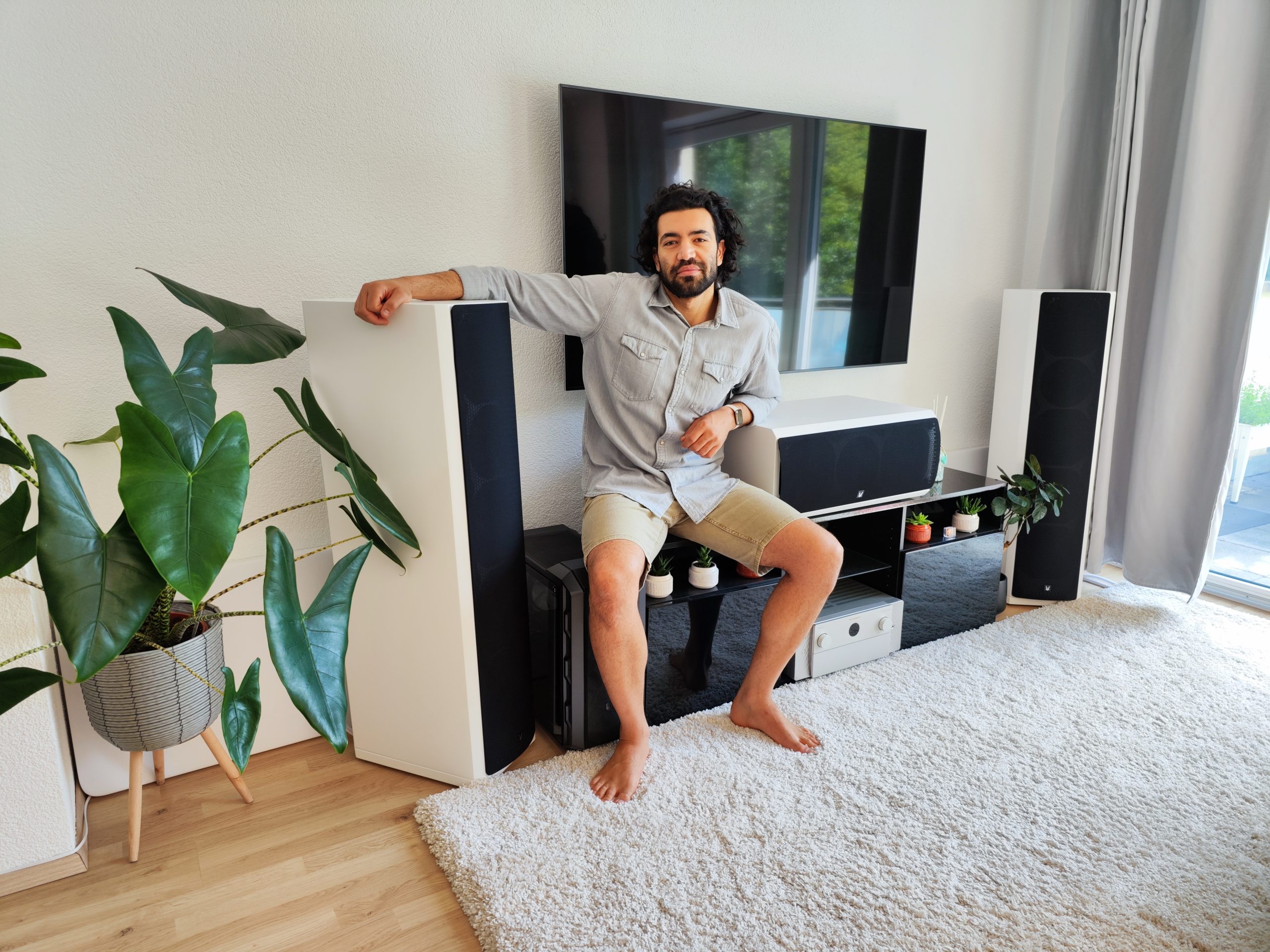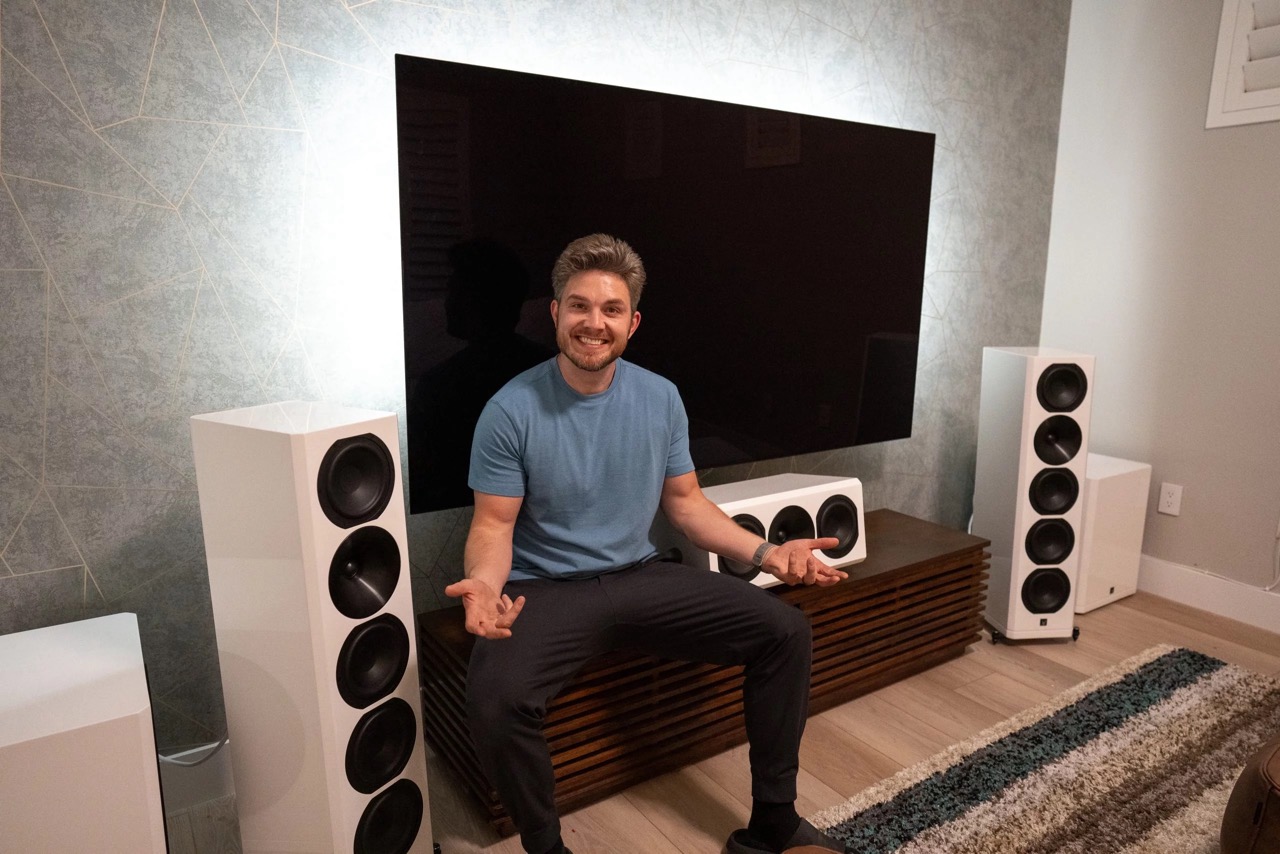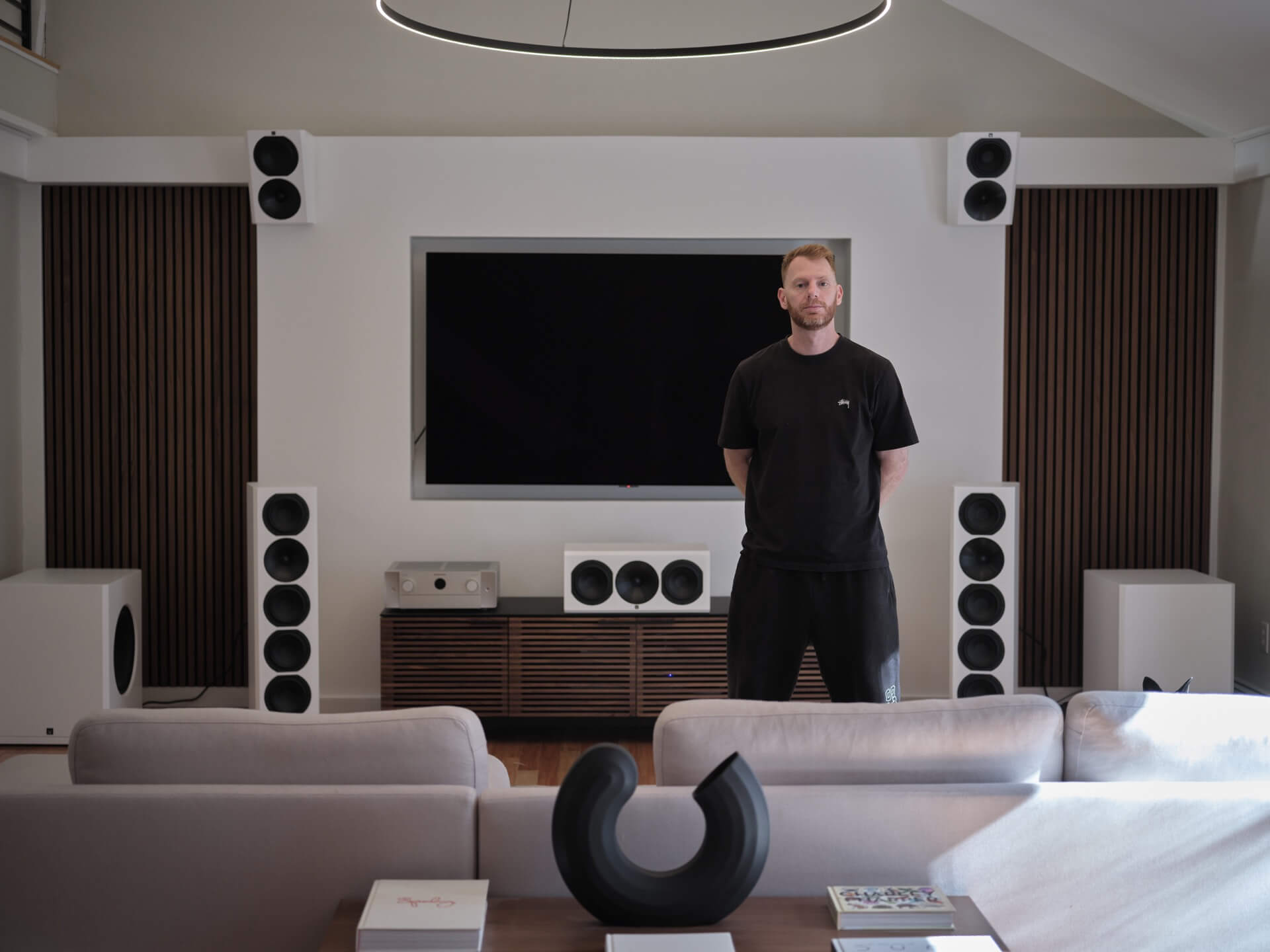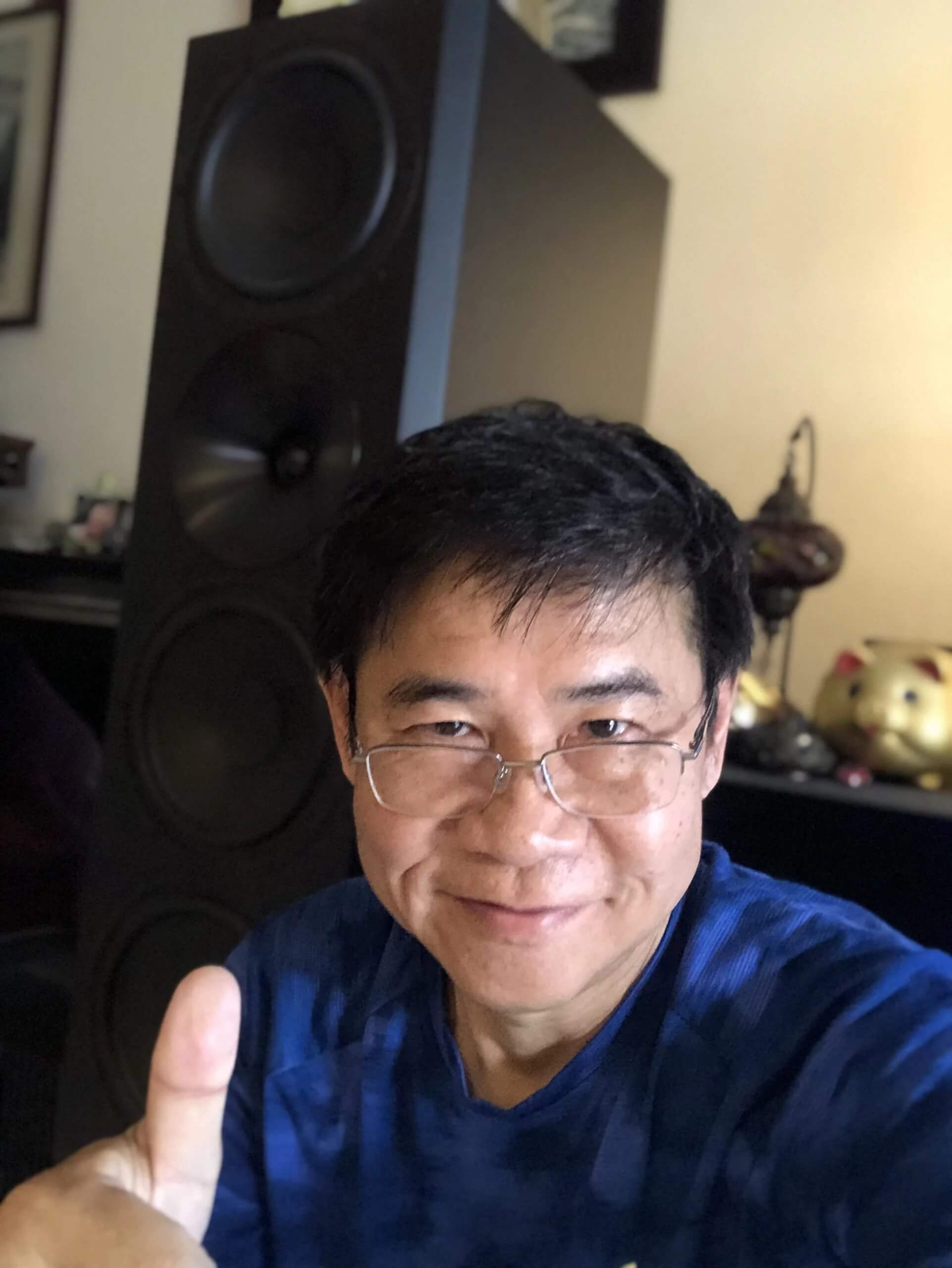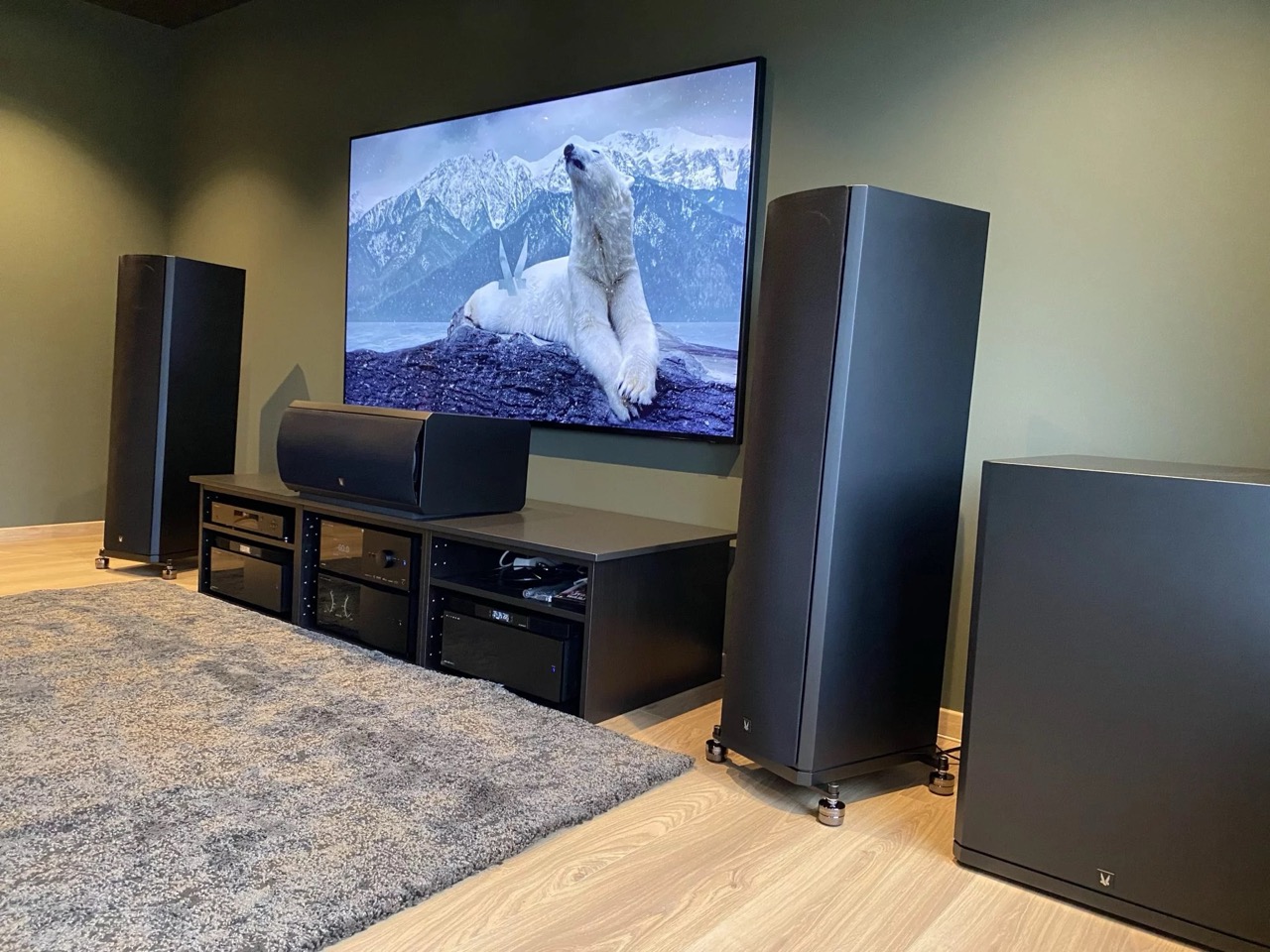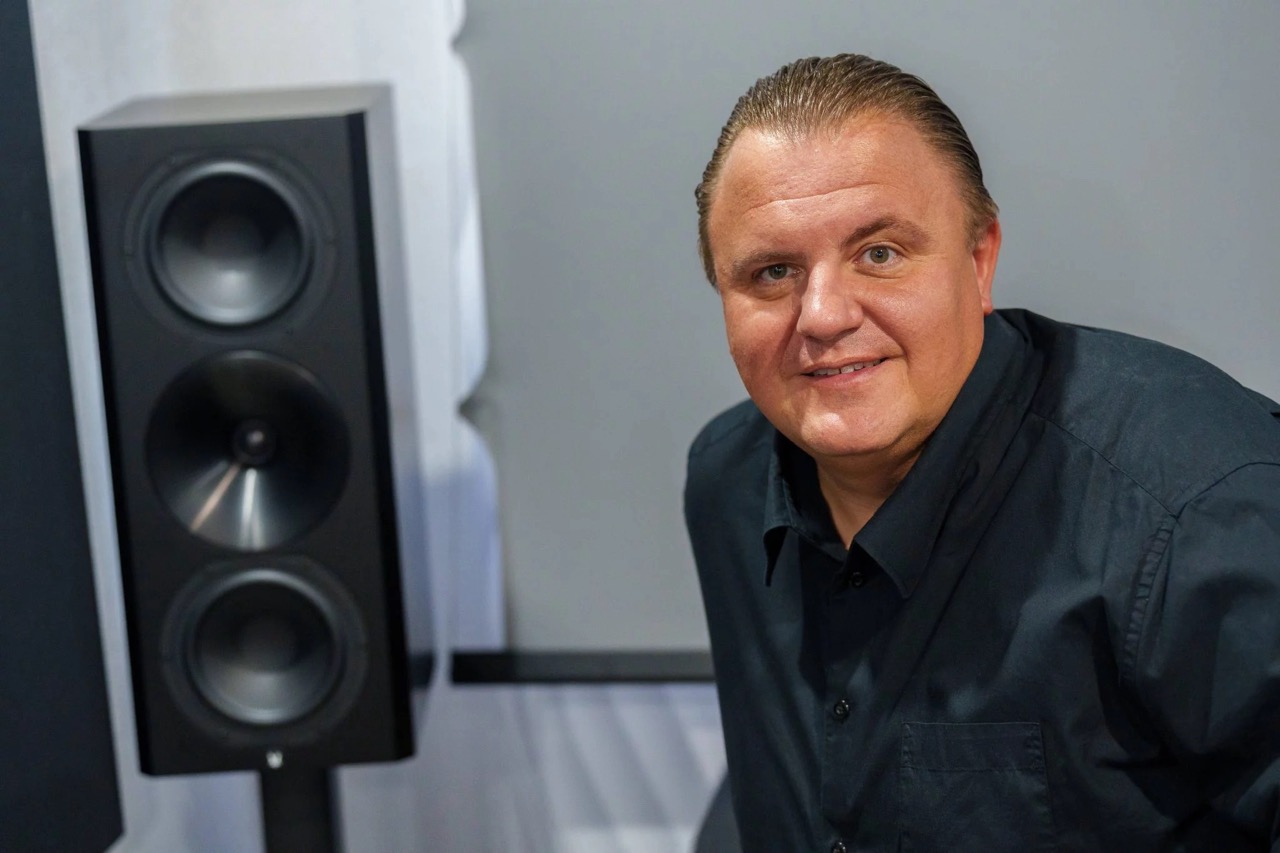Home Theater Soundproofing: Advanced Techniques
Article summary - TL;DR
- Achieve superior sound isolation in your home theater with advanced techniques tailored to your space.
- Consult professionals for customized soundproofing strategies, including room decoupling and mass-loaded vinyl.
- Address low-frequency sound leaks with solutions like double-layer drywall and acoustic caulk.
- Ensure proper ventilation by implementing a separate system to maintain comfort without compromising sound isolation.
- Enhance your audio-visual setup with the 1528 Tower 8 for robust sound performance.
Achieving superior sound isolation in your home theater goes beyond basic solutions and requires advanced techniques tailored to your specific room and needs. From decoupling strategies to specialized materials, here’s a comprehensive guide to advanced soundproofing techniques for the ultimate cinematic experience.
Beyond the Basics: Next-Level Soundproofing
- Consulting with Professionals: For soundproofing solutions beyond the norm, consulting with a professional is essential. They can assess your room, house, and requirements to devise customized strategies. Explore methods such as room decoupling, double stud walls, mass-loaded vinyl, Green Glue or acoustic caulk, mass-enhanced drywall, and massive doors for optimal results.
Materials and Methods for Superior Sound Isolation
- Decoupling: Maximizing decoupling between your home theater and the rest of your house is crucial for achieving optimal soundproofing. This involves isolating structural elements to prevent sound transmission.
- Double Stud Walls: Utilizing double stud walls with a door on either side enhances sound isolation by creating a barrier that minimizes sound leakage.
- Separate HVAC Ducts: Ensure that HVAC ducts serving your home theater are separate from those serving other areas of your house. This prevents sound from traveling through ductwork and leaking into adjacent rooms.
Dealing with Low-Frequency Sound Leaks
- Challenges of Low-Frequency Sound: Low-frequency sound leaks present unique challenges due to the long wavelengths involved. Addressing these leaks requires solutions that offer significant mass or are specifically designed to attenuate bass frequencies.
- Double Layer Drywall with Acoustic Caulk: Constructing double stud walls with a double layer of drywall and acoustic caulk between them provides substantial mass and effectively reduces low-frequency sound transmission.
Balancing Acoustic Isolation with Ventilation
- Importance of Proper Ventilation: While sound isolation is paramount, ensuring proper ventilation is also essential for comfort and air quality in your home theater.
- Separate Ventilation System: Implementing a separate ventilation system for your home theater minimizes sound leakage while providing adequate airflow. Incorporating turns, bends, and sound-dampening ducts further enhances acoustic isolation without compromising ventilation.
Creating a truly immersive home theater experience requires advanced soundproofing techniques tailored to your space. By consulting with professionals, utilizing specialized materials, and balancing acoustic isolation with ventilation, you can enjoy cinema-quality audio without disturbing the rest of your home.
Frequently asked questions
What advanced techniques can I use for soundproofing my home theater?
Consider consulting with professionals for customized strategies like decoupling, double stud walls, mass-loaded vinyl, and specialized acoustic materials.
How does decoupling improve sound isolation?
Decoupling involves isolating structural elements in your home theater to prevent sound transmission, enhancing overall soundproofing.
What are double stud walls and how do they help with soundproofing?
Double stud walls create a barrier that minimizes sound leakage, providing enhanced sound isolation for your home theater.
How can I prevent sound leaks through my HVAC system?
Ensure your home theater has separate HVAC ducts to stop sound from traveling through ductwork into adjacent rooms.
What challenges do low-frequency sounds present in soundproofing?
Low-frequency sounds have long wavelengths that make them harder to attenuate, requiring heavy materials or specialized solutions to effectively manage them.
How can double layer drywall help with soundproofing?
Using a double layer of drywall with acoustic caulk between them adds mass and significantly reduces low-frequency sound transmission.
Why is proper ventilation important in a soundproof home theater?
Proper ventilation is crucial for comfort and air quality, ensuring a pleasant viewing experience without compromising sound isolation.
What type of ventilation system should I use for my home theater?
A separate ventilation system with sound-dampening ducts can minimize sound leakage while providing adequate airflow in your home theater.
How can I achieve a cinema-quality audio experience at home?
Tailor advanced soundproofing techniques to your space, combining professional consultation, specialized materials, and effective ventilation for optimal results.


